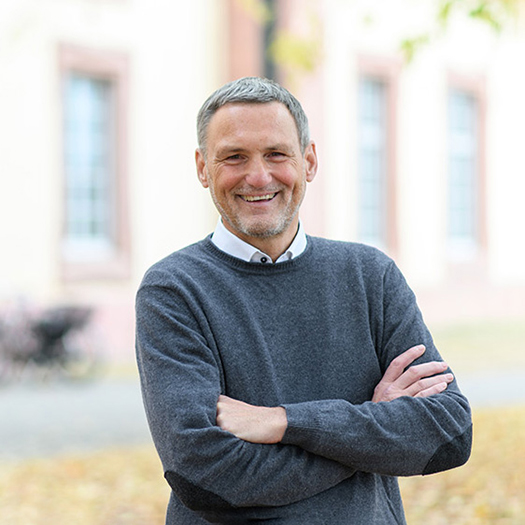Leibniz Network "Non-Cognitive Skills: Acquisition and Economic Consequences"
- ...
- Home
- Research at ZEW
- Projects
- Leibniz Network "Non-Cognitive Skills: Acquisition and Economic Consequences"
Leibniz Network "Non-Cognitive Skills: Acquisition and Economic Consequences"
Share this page
The international research network "Non-Cognitive Skills - Acquisition and Economic Consequences" was supported for three years (2008-2010) by the Leibniz Association as a part of the "Pakt für Forschung und Innovation 2008".The network was coordinated by the Centre for European Economic Research (ZEW) Mannheim and represented a combination of economic and psychological expertise from leading European research institutions (Centre for the Economics of Education (CEE) at the London School of Economics (LSE); German Socio-Economic Panel Study (SOEP) at the German Institute for Economic Research (DIW), Berlin; Central Institute of Mental Health (ZI), Mannheim; Chair of Social Psychology and Motivation and the Center for Quantitative Methods and Survey Research (CMS) at the University of Konstanz), the research group of James Heckman from the Economic Research Center (ERC) at the University of Chicago and the Baden-Württemberg employer's association Südwestmetall including its educational institutions. The network used methods related to several disciplines from the social sciences - including the economics of education, labor economics, motivational psychology, motivational neurosciences and econometrics - in order to enhance our understanding of human capital formation in the modern, science-based economy. In particular, the network focussed on non-cognitive skills such as motivation, persistence, self-efficacy and self-regulation. Optimal investments in these skills have not been sufficiently explored by economists and economic investment aspects have often been ignored in psychological research approaches. To remedy these lacks, all institutions of the Leibniz Network worked with theoretically sound empirical models and methods (representative panels, representative field studies and laboratory experiments, econometric procedures, simulations).The insights following this research approaches were discussed in four network conferences. The first conference, with 90 participants, took place at the ZEW in Mannheim, May 15-17, 2008 (keynote speakers: Prof. Dr. James Heckman, Prof. Dr. Peter Gollwitzer). The second conference took place at Kloster Hegne in Konstanz, March 19-21, 2009 (keynote speakers: Prof. Dr. Thomas Dohmen, Prof. Dr. Anja Achtziger). It was organized together with the chair of social psycholgy and motivation from the University of Konstanz. The third conference took place at the DIW Berlin, October 22-24, 2009 (keynote speakers: Prof. Dr. Jens Asendorpf, Prof. Dr. Ernst Fehr) and was organized together with the SOEP group (Prof. Dr. Jürgen Schupp, Prof. Dr. Christa Katharina Spieß, Prof. Dr. Gerd Wagner). The final conference took place at the Center for the Economics of Education at the LSE in London, October 21-23, 2010 (keynote speakers: Prof. Dr. Andrew Oswald, Prof. Dr. Stephen Scott). It was organized together with the CEE (Dr. Emma Tominey, Prof. Dr. Stephen Machin). In a new cooperation the ZEW investigated together with the Institute for Empirical Research in Economics at the University of Zurich (Prof. Dr. Ernst Fehr) and the SOEP group for the first time the determinants of impatience of children and their mothers within the household environment. The network examined the priorities of education policy, since achievement schools and the labour market depends on the early life environment.Moreover, we integrated and supported young researchers within the research project, which led to considerable results: First of all, four doctoral dissertations had already been submitted successfully (Dr. Katja Coneus, ZEW; Dr. Johannes Gernandt, ZEW; Dr. Eva Berger, SOEP; Dr. Emma Tominey, CEE; Dr. Dorothea Blomeyer, ZI). In addition, four other theses at ZEW had taken the project as a starting point (Philipp Eisenhauer, ZEW; Dr. Andrea Mühlenweg, ZEW; Verena Niepel, ZEW; Karsten Reuß, ZEW; Pia Dovern-Pinger, ZEW and University of Mannheim). There was also a significant exchange of young researchers within the network: Among others, ZEW associates visited the IFN in Stockholm (Verena Niebel), the University of Chicago (Pia Dovern-Pinger and Philipp Eisenhauer) and the SOEP in Berlin (Katja Coneus). At the same time, external researchers joined the ZEW such as Karin Edmark from IFAU in Uppsala (Sweden), Ruben Seiberlich from the University of Konstanz as well as Marianella Gonzalez and Daniel Erdsiek from the University of Mannheim.Part of the research results have already been published in peer-reviewed journals including among others: American Economic Review; Clinical and Experimental Research; Economics and Human Biology; Economics Letters; Education Economics; Labour Economics; Journal of the European Economic Association; Journal of Human Ressources; Journal of Psychiatric Research, Personality and Individual Differences; Social Psychology; Schmollers Jahrbuch - Journal of Applied Social Science Studies. The complete list of research findings are summarized in three network letters including detailed information on distinct activities, structured by Institutions, People; Talks, Discussions; Papers, Publications; Mobility, Qualifications; New Projects, Conferences and Workshops.Further information regarding the network activities are available via the newsletter

